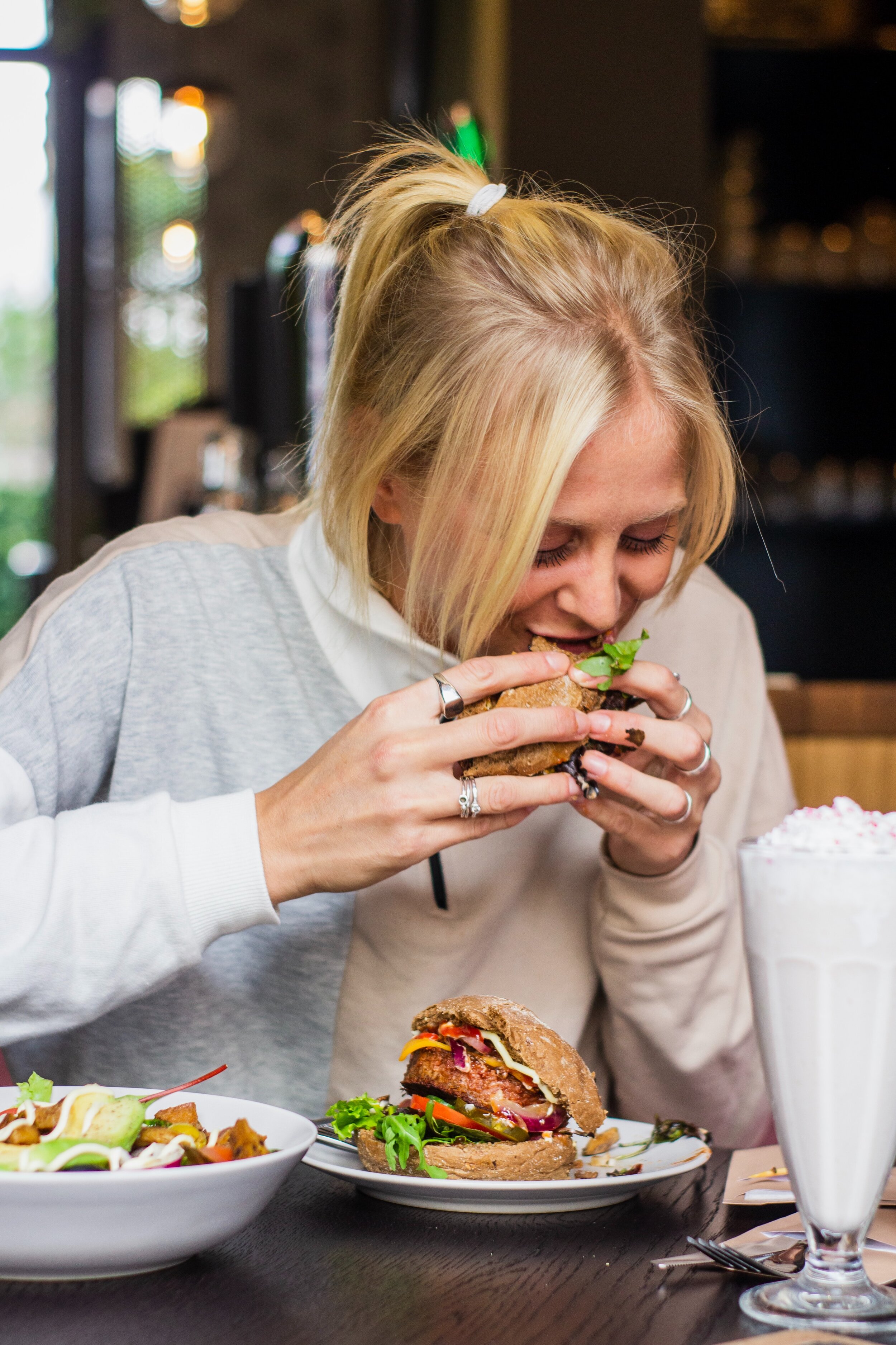Gluttony: What it is and What it isn’t

The word gluttony conjures up images of lounging on the couch in pajamas eating bon-bons, or my personal favorite, a pint of Ben and Jerry’s. Oh Phish Food, we’ve shared some wondrous evenings together. Do we have to break up?
Gluttony is one of the Seven Deadly Sins coined by the early church, joining the list of pride, greed, lust, envy, wrath and sloth. While Jesus never labeled these sins as “deadly”, these themes are woven throughout scripture. Most can agree that journeys down these roads typically lead to dead-ends.
The definition of gluttony is, “habitual greed or excess in eating.”
Note the words ‘habitual’ and ‘excess’. They are key. An occasional overindulgence isn’t habitual, it’s normal. Now and then, enjoying the creamy cold deliciousness with a flowing ribbon of caramel and chewy chocolate chunks after a long day really does seem to wash the worries of the world away. Ice cream brings joyful coldness, pleasure, big smiles, and laughter. It’s a gift.
Where things get messy is when day-in and day-out we begin turning to food to fix our problems. Bite after bite of mindless eating, pushing the limits past fullness and ignoring God-given responsibilities in the name of mint chocolate chip…that’s not going to end well.
People numb out on food for many reasons. Sometimes it’s simply due to a fear of scarcity – that there won’t be more available later, or that the food isn’t supporting good health and therefore should be avoided at all costs. (And the irony is that this line of thinking usually makes cravings intensify!)
Other times there might be an emotional trigger – loneliness, anxiety, or depression. And for some, there might be a mental illness, such as Binge Eating Disorder (BED) which warrants help from a trained therapist and dietitian.
A common misconception about gluttony is that it looks a certain way; that individuals in larger bodies must be gluttonous. I can tell you first hand – it simply ain’t true. Time and time again as I have sat with clients, I have come to realize that there’s no way to predict a person’s dietary habits based on their appearance. Some skinny folks eat twice their weight in burgers and milkshakes, and some larger folks hardly eat at all.
Nope, you can’t see gluttony. The media has done a fantastic job at making us think otherwise. Just about every over-eating character in every TV show, movie, and commercial is in a larger body, perpetuating the myth that only larger folks experience gluttony.
Gluttony isn’t a body type. It’s a state of mind. At its core, gluttony is one of the many forms of idolatry – when we turn to an earthly desire to fix our needs, wants, and desires, instead of turning to our Heavenly Father.
Some worship food, others money. Some turn to drugs and alcohol, while others bow down to new clothes or tech gadgets. It’s all the same really – in every case it’s an attempt to soothe our earthly desires with earthly things. And, it will never fill the God-shaped vessel in each of us that can only be filled by the one true King.
In Philipians 3:10a, 17-20, Paul provides encouraging words and specifically mentions a warning of serving the god that is our stomachs:
I want to know Christ and the power of his resurrection…Join together in following my example, brothers and sisters, and just as you have us as a model, keep your eyes on those who live as we do. For, as I have often told you before and now tell you again even with tears, many live as enemies of the cross of Christ. Their destiny is destruction, their god is their stomach, and their glory is in their shame. Their mind is set on earthly things. But our citizenship is in heaven.
So if your god is your stomach, it may be time to take a good hard look at what’s going on. But not in a judgy, shaming sort of way. Instead, get curious. In a non-judgmental fashion, explore all the emotions wrapped up in food and how your relationship with food might be impacting your relationships with others and with God. Ask God if your choices and behaviors are reflecting a resurrected life and to show you if there’s some healing that is needed. And if there is, bring it out into the light – ask for prayer, and seek guidance from food therapy experts. He delights in leading you down a path of healing and wholeness.
No need to put down the Phish Food. Savor and relish each creamy bite. Sing songs of praise for the ice cream engineer who put these glorious flavors together. God bless Ben and Jerry’s. Look past the carton to the deeper spiritual issue – one that can be conquered through the loving, healing hands of Christ.
Body positive blogs are inspiring, but sometimes it might not be enough. We get that! You might want something more. An expert to walk along side you in your journey towards body respect and food peace. We've got you covered. Sign up for a free "pre-consultation" to see if working with one of our registered dietitians doing faith-based nutrition counseling is right for you.
Dawn is an Associate Professor of Nutrition and a Registered Dietitian Nutritionist. She is a wife and a mother to an amazing 13-year old boy. Dawn enjoys finding creative ways to spread the word that God’s unconditional love can bring healing to every broken relationship, including one with food.





